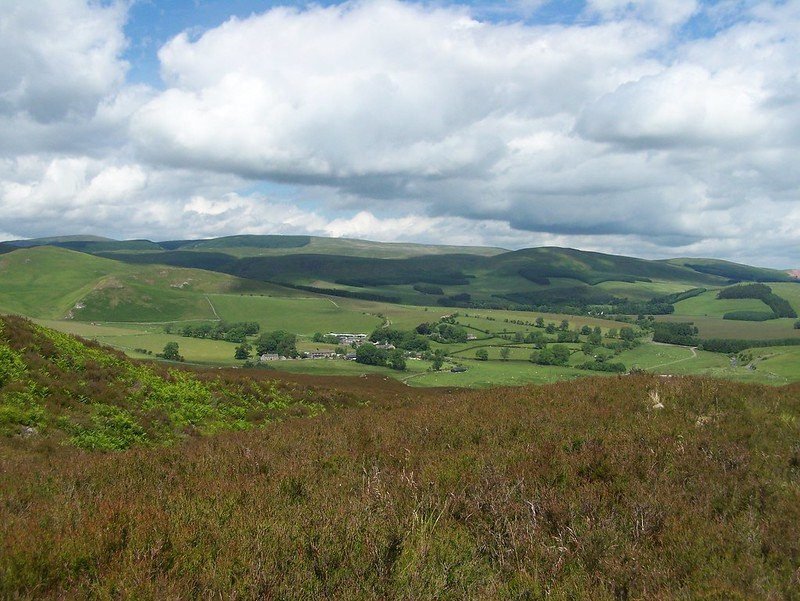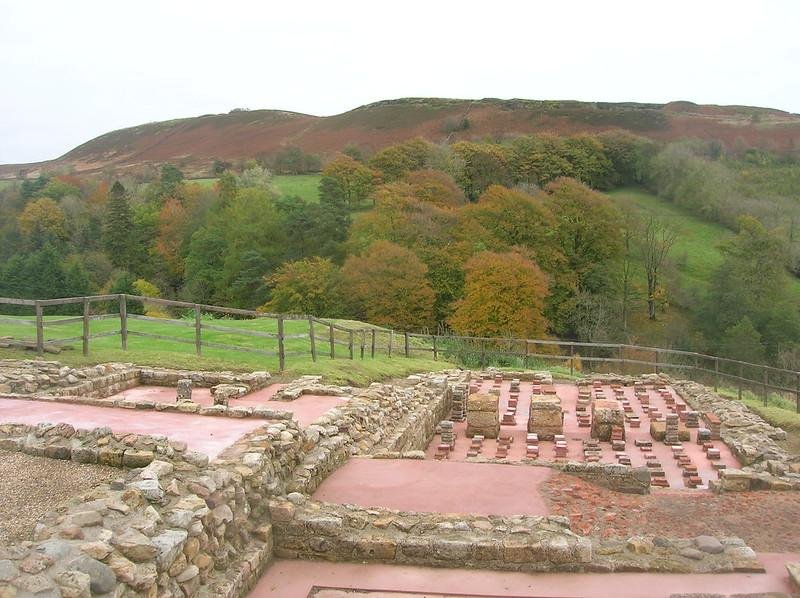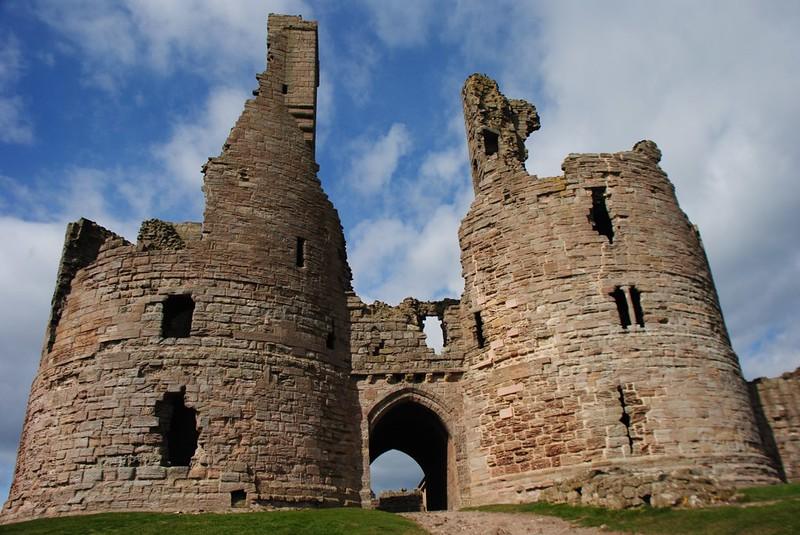Introduction to Alwinton
Alwinton is a quaint and picturesque village nestled in the heart of Northumberland, England. Known for its stunning natural landscapes and tranquil rural charm, Alwinton serves as an exceptional representation of the Northumbrian countryside. The village is situated a few miles from the historic town of Rothbury, with the scenic River Coquet meandering through the surrounding countryside, enhancing its idyllic setting.
One of the remarkable aspects of Alwinton is its rich history and cultural significance. It stands as a testament to Northumberland's rural heritage, with its stone-built cottages and traditional architecture reflecting the local vernacular. The village is frequently visited by those looking to escape the hustle and bustle of urban life, allowing visitors to experience the serene and unspoiled beauty that Northumberland has to offer.
As you delve deeper into this blog post, you can expect an exploration of Alwinton’s key historical landmarks, local traditions, and the vibrant community that characterises this charming village. The narrative will also encompass noteworthy features, such as the surrounding landscapes, wildlife, and recreational activities that are available for both residents and travellers alike.
In addition to its natural beauty, Alwinton is also strategically located near several significant historical sites, making it a focal point for those interested in the region's heritage. This village is an essential part of Northumberland, showcasing both the natural splendour and rich cultural tapestry of the area. Join us as we uncover the various facets of Alwinton, a true gem within Northumberland.

Geographical Location of Alwinton
Alwinton is a picturesque village situated in the Northumberland National Park, an area renowned for its stunning natural beauty and rich history. Located at the confluence of the Coquet and Alwinton Burn, the village boasts a strategic position that enhances its appeal to both visitors and locals.
Nestled among the Cheviot Hills, Alwinton is often considered a gateway to some of Northumberland's most captivating landscapes. The village lies approximately 10 miles north of the market town of Morpeth, making it relatively accessible for day-trippers seeking an escape into nature.
The nearby town of Rothbury, located about 5 miles to the east, offers additional amenities and serves as a focal point for tourists exploring the area. Alwinton's proximity to the A697 road facilitates convenient access, allowing visitors to easily embark on explorations of the Northumberland countryside.
In terms of notable natural features, the surrounding hills provide opportunities for various outdoor activities such as hiking, walking, and cycling. The picturesque River Coquet, which runs close to the village, adds to the scenic landscape and is a popular spot for fishing and riverside walks. Alwinton is also strategically positioned near several historical landmarks, including the iconic Cragside House and Gardens, a National Trust property that attracts history enthusiasts and nature lovers alike.
Furthermore, its location within Northumberland National Park emphasizes Alwinton's role in eco-tourism, supporting a myriad of outdoor pursuits while promoting the conservation of the region’s diverse ecosystems. The area's accessibility, coupled with its proximity to various tourist attractions, makes Alwinton an ideal destination for those looking to explore the remarkable history and natural beauty of Northumberland.
A Brief History of Alwinton
Alwinton, a picturesque village located in the Northumberland National Park, boasts a rich and varied history that dates back several centuries. The origins of Alwinton can be traced to the Anglo-Saxon period, with its name derived possibly from the Old English terms meaning "Aldwin's town." This suggests that the area was settled during a time of significant population movement and agricultural expansion in England.
Throughout its history, Alwinton has been shaped by important events and figures that have influenced both the village and the surrounding region. In the medieval period, the village served as a strategic point for the defence against border incursions, particularly during the turbulent years of the 14th and 15th centuries when tensions between England and Scotland were prevalent.
The nearby church of St. Michael believed to date back to the 12th century, stands as a testament to the village's historical significance and its role in the community. The 19th century brought profound changes to Alwinton, particularly with the onset of the Industrial Revolution.
While the village itself remained largely agricultural, the broader region experienced shifts in economic activity, impacting local trades and livelihoods. Improvements in transportation, such as the establishment of new roads, facilitated easier access to larger markets and attracted visitors to the scenic landscapes that define the area today.
This period also saw the emergence of tourism, as Alwinton became a focal point for those exploring the beauty of Northumberland. Moreover, Alwinton has historical connections with prominent figures, including early conservationists who recognised the importance of preserving the village's unique heritage and natural environment.
As such, the legacy of Alwinton transcends its immediate geography, contributing to the broader historical narrative of Northumberland. By examining the complexities of its past, one can appreciate Alwinton not only as a charming village but as a vital part of England's historical landscape.
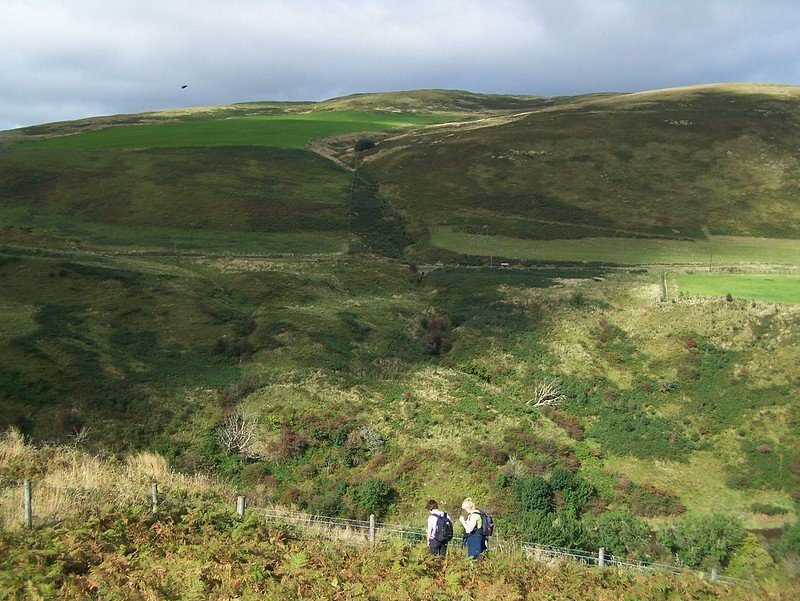
Alwinton’s Population Demographics
Alwinton, a quaint village located in Northumberland, has shown interesting trends in its population demographics over the years. Historically, the village has experienced fluctuation in size and composition, influenced by various social and economic factors. As of the latest census, Alwinton’s population stands at approximately 150 residents, a small yet vibrant community.
The age distribution indicates a predominance of older adults, with many residents aged 65 and above, reflecting a trend often observed in rural areas. This ageing population trend suggests a potentially shrinking workforce and raises concerns about the sustainability of local services tailored for the elderly.
Employment rates in Alwinton have also evolved, with a significant portion of the population engaged in agriculture and tourism-related activities. With the picturesque landscapes and rich history of the region, tourism has become a vital component of the local economy.
The employment landscape, however, has faced challenges; many younger individuals relocate to urban centres in search of better opportunities, leading to a demographic imbalance. Consequently, the village has seen lower participation rates among working-age individuals, further emphasising the importance of addressing local employment needs to retain younger residents.
Moreover, recent trends reveal a gradual increase in interest from outside residents seeking second homes or vacation rentals in Alwinton. This influx influences the community dynamics, introducing new demographics that can contribute to local economic growth while also presenting challenges related to housing availability and community cohesion.
Overall, the demographic shifts in Alwinton highlight the unique characteristics of this historical village, underscoring the need for strategic planning to ensure that the community remains vibrant and sustainable for future generations.
Community and Lifestyle in Alwinton
Alwinton, a quaint village nestled in the heart of Northumberland, boasts a vibrant community that showcases strong social ties among its residents. The lifestyle in Alwinton reflects a blend of traditional rural living infused with a modern outlook, enhancing the overall community spirit that defines this picturesque locale. The residents of Alwinton engage in numerous local activities that foster friendships and strengthen community bonds.
One of the notable aspects of Alwinton's community life is the active participation in various events throughout the year. Seasonal events such as village fairs, harvest festivals, and craft markets are highlights on the local calendar, bringing together families from afar and creating an atmosphere of celebration.
These gatherings not only offer entertainment but also provide opportunities for neighbours to connect, share experiences, and collaborate on initiatives that benefit the village as a whole. The role of local organizations in promoting community welfare cannot be understated.
Alwinton is home to several clubs and societies, ranging from sports teams to cultural groups, all awaiting new members who wish to actively contribute to village life. Such organizations play a pivotal role in organizing events, supporting local causes, and fostering social connections among residents.
Furthermore, these groups help convey a sense of belonging, encouraging individuals to engage with one another and their environment. Alwinton's community spirit is also evident in the efforts made to preserve the village's cultural heritage.
Regular workshops and educational programs highlight traditional skills and local history, allowing villagers to participate actively in safeguarding their identity. This emphasis on cultural stewardship enhances the quality of life in Alwinton, creating a harmonious balance between community development and heritage preservation.
Architecture and Landmarks in Alwinton
Alwinton is a village that encapsulates the rich architectural heritage of Northumberland, characterised by its traditional stone buildings and unique structures that reflect its historical significance. One of the standout features of Alwinton is its vernacular architecture, which employs local stone, giving the buildings a rustic charm that harmonizes with the surrounding landscape.
This particular style is representative of the region and showcases the craftsmanship that has been passed down through generations. Among the notable landmarks, St. Michael's Church deserves special mention. Erected in the early 19th century, this church exemplifies the Gothic Revival style that was popular during its construction.
The intricate stonework and stained glass windows not only serve a religious function but also offer insight into the artistic endeavours of the time. St. Michael's stands as a testament to the community’s enduring faith and dedication, embodying the historical narratives embedded in its architecture.
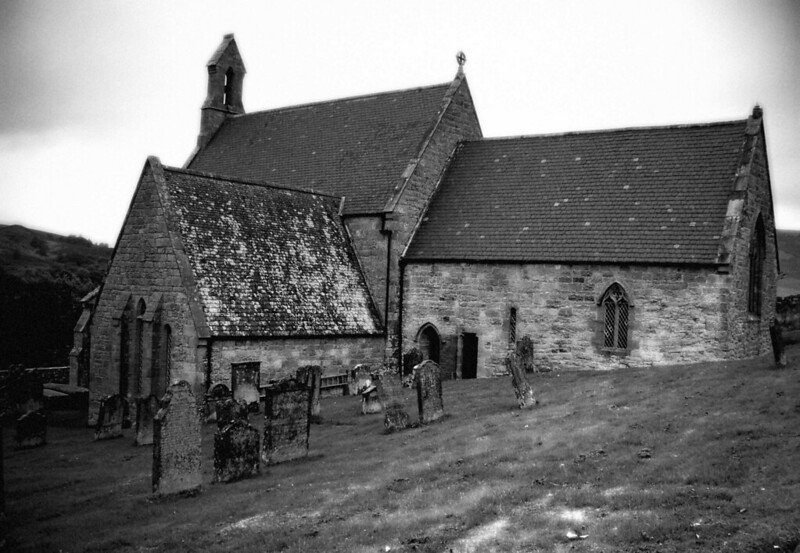
Additionally, the village is dotted with charming cottages and farmhouses, many of which date back to the 18th and 19th centuries. These structures are integral to the village’s identity and mirror the agricultural history of Alwinton. The preservation of such buildings is crucial as they illustrate the lifestyle and culture of the village’s early inhabitants.
Historical features, such as slate roofs and timber beams, have been well maintained, providing visitors with a glimpse into the past. Overall, the architectural elements of Alwinton contribute significantly to its charm and character.
The historical landmarks, from St. Michael’s Church to the various stone cottages, narrate the story of a village that has retained its unique identity amidst the changes of modernity. Exploring these structures offers a profound appreciation for the traditions and cultural heritage of Northumberland.
Economy and Local Industries
Alwinton, a picturesque village nestled in Northumberland, boasts a diverse economy shaped significantly by its geographical and historical context. Agriculture remains at the core of Alwinton's economy, with many locals engaged in traditional farming practices that have been passed down through generations.
The fertile lands around the village support the cultivation of various crops and livestock rearing, which form the backbone of the local livelihood. The agricultural sector not only sustains the community but also plays a crucial role in maintaining the scenic beauty of the area, making it an integral part of the regional identity.
In recent years, tourism has emerged as a vital contributor to Alwinton’s economic landscape. The village’s proximity to the stunning Northumberland National Park attracts visitors seeking outdoor adventures, including hiking, cycling, and wildlife watching.
As a result, local businesses have adapted to cater to these tourists, with the establishment of lodges, cafes, and shops selling local artisanal crafts. These enterprises not only provide necessary services to visitors but also create jobs and stimulate the local economy, thereby fostering a sense of community entrepreneurship.
However, Alwinton's economy is not without its challenges. The remote location can hinder access to larger markets, and the village often struggles with the limited availability of resources necessary for business expansion. Additionally, fluctuations in agricultural pricing and the seasonal nature of tourism can affect income stability for many households.
Nevertheless, opportunities exist for development, particularly in sustainable tourism initiatives that promote local culture and heritage. By leveraging its rich historical background and natural beauty, Alwinton has the potential to enhance its economic resilience and diversify its industries, ultimately contributing to the well-being of its residents.

Tourism in Alwinton
Alwinton, a picturesque village nestled in the Northumberland National Park, serves as a captivating destination for tourists seeking both tranquillity and adventure. The charm of Alwinton is characterised by its stunning natural landscapes, rich historical heritage, and a variety of outdoor activities that cater to diverse interests.
One of the primary attractions in Alwinton is the nearby Simonside Hills, renowned for its breathtaking views and extensive walking paths. These trails offer opportunities for both casual hikers and seasoned trekkers to immerse themselves in the beauty of rugged terrain and lush greenery, attracting nature enthusiasts from all over.
For recreational activities, the River Coquet offers excellent opportunities for fishing, while the surrounding landscape is perfect for bird-watching and nature photography. The region’s diverse wildlife adds to the appeal, giving tourists a chance to witness species in their natural habitat.
When it comes to accommodations, Alwinton presents a range of options, from cosy bed and breakfasts to self-catering cottages, ensuring comfortable stays for visitors. Local amenities, including shops and eateries, highlight the village’s welcoming atmosphere, providing ample opportunities for tourists to indulge in regional delicacies and artisanal products.
Overall, Alwinton emerges as an attractive tourist destination, blending natural beauty, cultural richness, and friendly hospitality to create a memorable experience for all who visit. Whether seeking an active retreat or a peaceful getaway, Alwinton enriches visitors with its unique allure.
Conclusion: The Future of Alwinton
As we reflect on the rich history and vibrant culture of Alwinton, it becomes evident that the future of this Northumberland village is poised at a crucial juncture. The delicate balance between development and preservation is paramount in maintaining the unique attributes that define Alwinton. With its picturesque setting and strong community values, the village has long been a cherished destination for both residents and visitors alike.
Looking ahead, it is essential for local authorities and residents to collaborate on sustainable development initiatives that respect the village's historical character while accommodating the needs of a growing population.
Innovations in eco-friendly housing, enhancements to public amenities, and improved transportation networks can significantly contribute to the village’s livability without detracting from its charm. This approach will ensure that Alwinton retains its identity amidst the inevitable changes brought on by an evolving society.
Furthermore, as demographic shifts influence the village’s landscape, it is important to consider the integration of new residents into the existing community fabric. Engaging newcomers in local traditions, governance, and communal activities can foster a sense of belonging and ensure that the intrinsic values of Alwinton are upheld.
Celebrating multicultural contributions can further enrich the village's narrative, promoting inclusivity and diversity.
In summary, the future of Alwinton lies in the collective effort to harmonize development with the preservation of its historical essence and community spirit. By embracing responsible growth and encouraging active participation among residents, Alwinton can safeguard its distinctive identity while evolving to meet contemporary needs.
This proactive approach will not only benefit current inhabitants but also provide a welcoming environment for generations to come, ensuring that Alwinton remains a cherished gem in Northumberland.
FAQs
Where is Alwinton located?
Alwinton is in Northumberland, near the Cheviot Hills and the Scottish border.
What outdoor activities can I do in Alwinton?
Hiking, cycling, and exploring the Northumberland National Park.
Are there historical sites in Alwinton?
Yes, sites like Harbottle Castle and Alwinton Church.
Is there public transportation to Alwinton?
Limited bus services are available; driving is more convenient.
Where can I stay in Alwinton?
Local inns, B&Bs, and cottages.
Does Alwinton host any annual events?
Yes, the Alwinton Border Shepherds’ Show in October.
Are there pubs or restaurants in Alwinton?
There is a local pub, the Rose and Thistle.
What is the nearest town to Alwinton?
Rothbury is one of the nearest towns, about 10 miles away.
